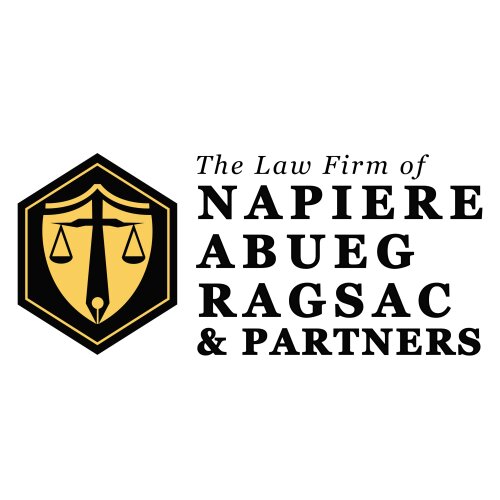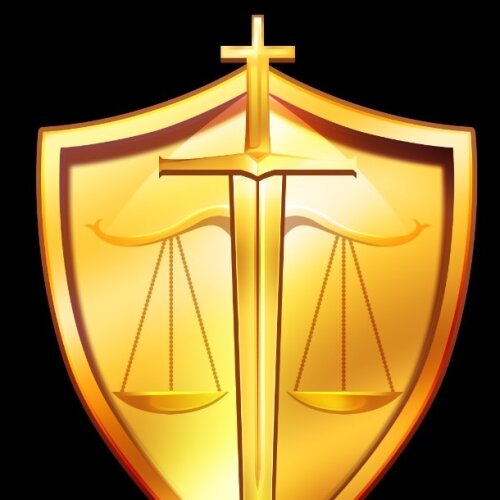Best Due Diligence Lawyers in Philippines
Share your needs with us, get contacted by law firms.
Free. Takes 2 min.
Or refine your search by selecting a city:
List of the best lawyers in Philippines

Dagsaan Monterde Castillo Law and Notary Public (DMC LAW)
15 minutes Free ConsultationPhilippines Due Diligence Legal Questions answered by Lawyers
Browse our 1 legal question about Due Diligence in Philippines and read the lawyer answers, or ask your own questions for free.
- eviction of squatters
- We inherited a lot of property in Lapasan that has been inhabited by squatters for years. I need to evict them so I can fence it.
-
Lawyer answer by Atty. Rainier Mamangun
You would need to send the informal settlers a prior Demand/Notice to Vacate prior to filing a case for Ejectment. You may message us directly if you wish to discuss this matter in detail.
Read full answer
About Due Diligence Law in Philippines
Due diligence in the Philippines pertains to the investigative process that businesses undertake to assess legal, financial, and operational aspects of a prospective business transaction, such as mergers, acquisitions, and joint ventures. This practice is crucial as it helps organizations mitigate risks, verify compliance with local regulations, and ensures that the transaction aligns with business objectives. The legal framework governing due diligence encompasses various laws and statutes, including corporate law, property law, and labor law, amongst others.
Why You May Need a Lawyer
There are several situations where you may require legal assistance with due diligence in the Philippines:
- Mergers and Acquisitions: When acquiring businesses, it is essential to understand all potential liabilities and assets thoroughly.
- Real Estate Transactions: Verification of property titles and understanding zoning laws require expert legal insight.
- Corporate Investments: Ensuring compliance with investment laws and understanding the financial health of the company.
- Regulatory Compliance: Assistance in ensuring that all legal and regulatory requirements are met.
- Risk Assessment: Identifying any potential legal issues that may affect future business operations.
Local Laws Overview
Due diligence in the Philippines is guided by several key legal aspects:
- Civil Code of the Philippines: Governs contract law, which is fundamental in transaction agreements.
- Corporation Code of the Philippines: Provides guidelines for the establishment, organization, management, and dissolution of corporations within the country.
- Labor Code: Ensures that businesses comply with labor laws, including employee rights and benefits.
- Securities Regulation Code: Important for companies involved in investments and those listed on the stock exchange.
- Property Registration Decree: Establishes the legal framework for property ownership and the transfer of titles.
Frequently Asked Questions
1. What is the purpose of due diligence?
Due diligence aims to provide comprehensive insights into the financial, legal, and operational aspects of a business transaction to minimize risks and make informed decisions.
2. How long does the due diligence process take in the Philippines?
The duration varies depending on the complexity of the transaction but typically lasts from 30 to 90 days.
3. Can due diligence be conducted remotely?
Yes, technological advancements have enabled parts of the due diligence process to be conducted remotely; however, certain aspects like physical asset verification may require site visits.
4. Are there specific due diligence requirements for foreign investors?
Yes, foreign investors must comply with regulations such as the Foreign Investments Act and must check for any industry-specific restrictions.
5. Is financial due diligence different from legal due diligence?
Yes, financial due diligence focuses on evaluating financial records and projections, while legal due diligence examines legal contracts, agreements, and regulatory compliance.
6. What happens if due diligence uncovers issues?
Findings can lead to renegotiation of terms, price adjustment, or even the abandonment of the deal.
7. How can a lawyer assist with due diligence?
A lawyer helps navigate legal complexities, interpret statute requirements, and negotiate favorable terms based on due diligence findings.
8. What is enhanced due diligence?
Enhanced due diligence involves more detailed scrutiny and is often applied in high-risk situations or when substantial sums of money are involved.
9. Are there standard checklists for due diligence in the Philippines?
While there are general standards, checklists may vary depending on the industry and type of transaction.
10. Can due diligence be skipped if both parties agree?
While skipping due diligence is theoretically possible if both parties agree, it is not advisable due to potential unforeseen risks and liabilities.
Additional Resources
For further assistance, the following organizations and resources can be helpful:
- Philippine Securities and Exchange Commission (SEC)
- Department of Trade and Industry (DTI)
- Board of Investments (BOI)
- Local chambers of commerce and industry associations
- Online legal research portals and libraries
Next Steps
If you require legal assistance in due diligence, consider the following steps:
- Identify Needs: Clearly define what you need assistance with and the specific areas of due diligence required.
- Seek Expertise: Engage with a qualified lawyer or legal firm specializing in due diligence who understands local laws and business practices.
- Prepare Documentation: Gather all relevant documents and information that may be required during the due diligence process.
- Schedule Consultations: Set up meetings with your lawyer to discuss strategies, expectations, and timelines.
- Review and Act: Carefully review all due diligence reports and legal opinions before making final decisions and agreements.
Lawzana helps you find the best lawyers and law firms in Philippines through a curated and pre-screened list of qualified legal professionals. Our platform offers rankings and detailed profiles of attorneys and law firms, allowing you to compare based on practice areas, including Due Diligence, experience, and client feedback.
Each profile includes a description of the firm's areas of practice, client reviews, team members and partners, year of establishment, spoken languages, office locations, contact information, social media presence, and any published articles or resources. Most firms on our platform speak English and are experienced in both local and international legal matters.
Get a quote from top-rated law firms in Philippines — quickly, securely, and without unnecessary hassle.
Disclaimer:
The information provided on this page is for general informational purposes only and does not constitute legal advice. While we strive to ensure the accuracy and relevance of the content, legal information may change over time, and interpretations of the law can vary. You should always consult with a qualified legal professional for advice specific to your situation.
We disclaim all liability for actions taken or not taken based on the content of this page. If you believe any information is incorrect or outdated, please contact us, and we will review and update it where appropriate.
Browse due diligence law firms by city in Philippines
Refine your search by selecting a city.















